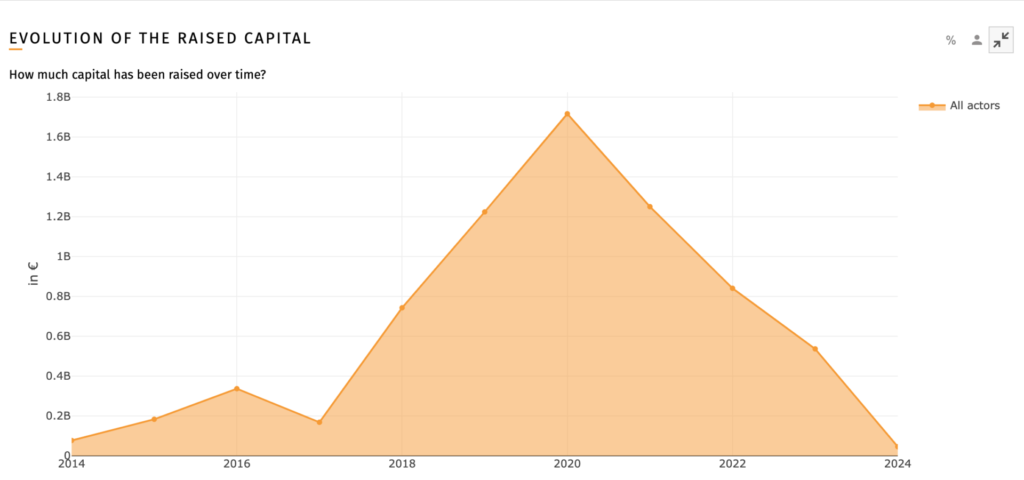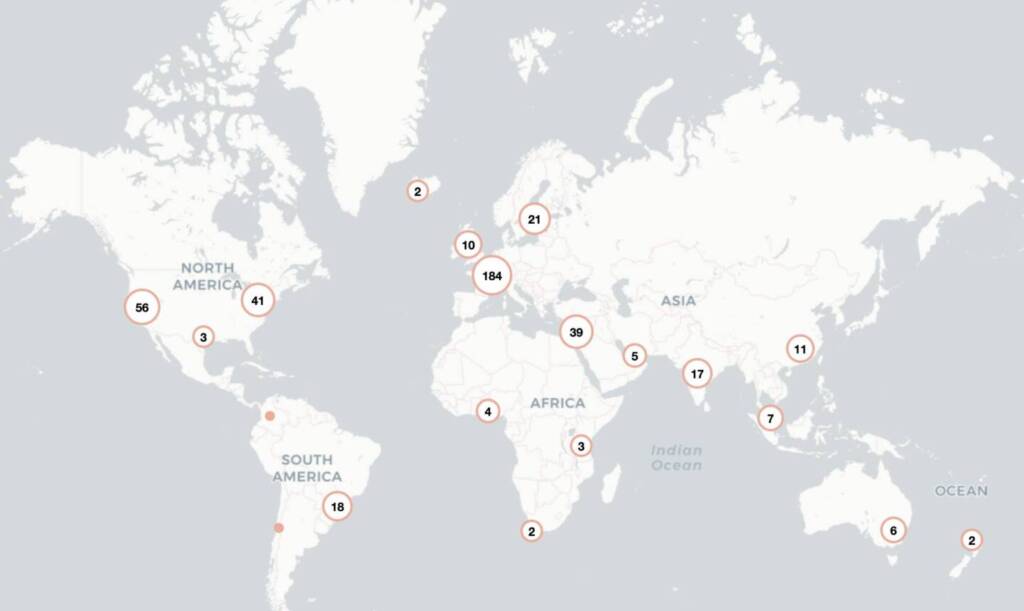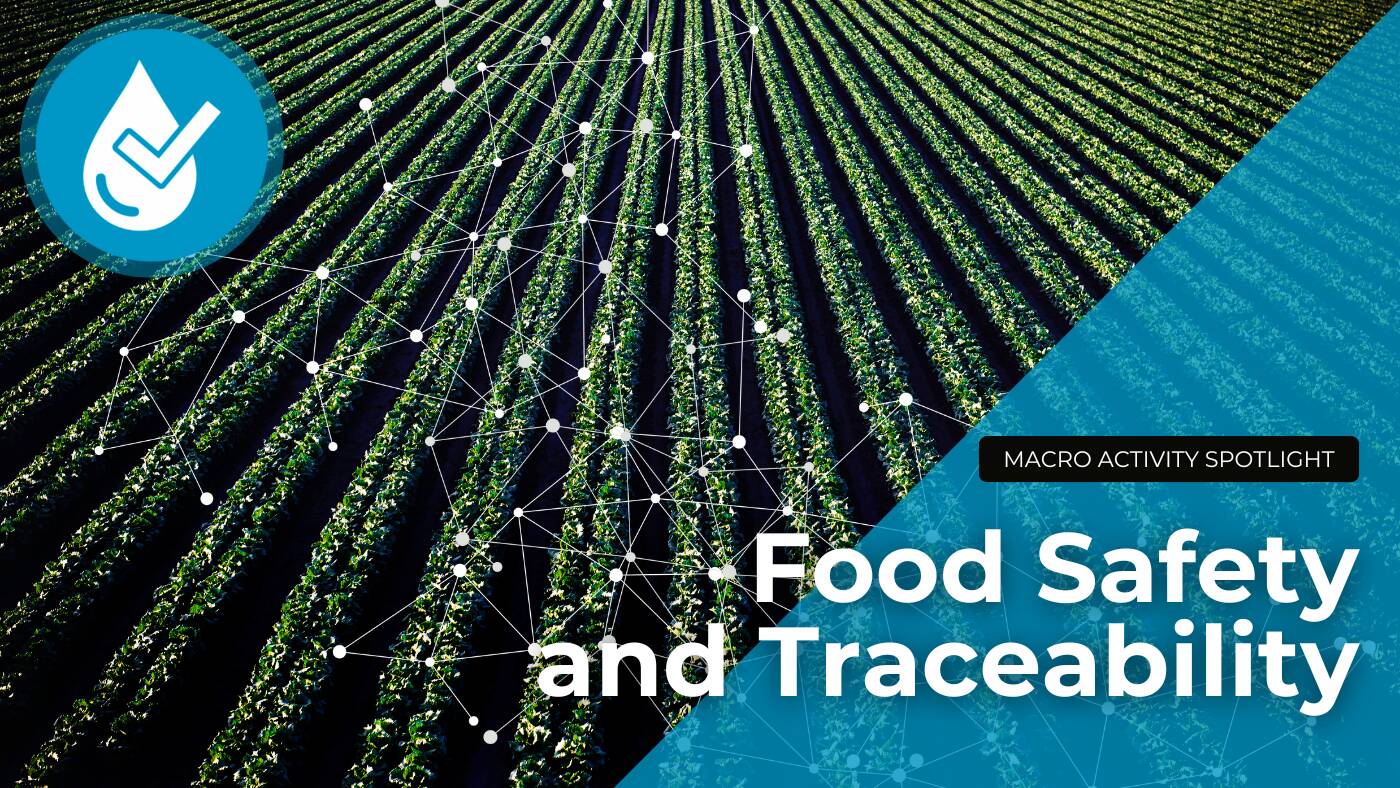Food Safety and Traceability
The Food Safety and Traceability industry has become increasingly important in recent years due to growing concerns about the safety and quality of food products. This was highlighted during the COVID-19 pandemic, which has disrupted food supply chains and necessitated rapid responses to prevent contamination risks and ensure public health safety. Technological advancements, such as blockchain and artificial intelligence, can enable more efficient and accurate tracking as well as help identify potential safety risks. The industry is expected to grow due to increasing demand and regulatory requirements, but the cost of implementing and maintaining safety and traceability measures can be high. Climate change, environmental degradation, and natural disasters can also impact the safety and quality of food products, highlighting the need for more sustainable and resilient supply chains.
What is Food Safety and Traceability?
The Food Safety and Traceability sector covers tech-powered solutions to sanitize food processing equipment, assess products’ freshness and prolong their shelf-life. This category also includes products or services for detecting unwanted food ingredients, pathogens, and allergens, as well as applications that help trace the entire supply chain.
The Role of Food Safety and Traceability in Shaping the Agrifood System
Food safety is a crucial global concern. Maintaining the safety and quality of food products is essential for safeguarding consumer health, preventing foodborne illnesses, and upholding trust in the food distribution network. An integral component of food safety is traceability, which involves tracking and tracing food items throughout the entire supply chain.
Based on Insight Ace Analytic’s recent report, the global food traceability market is valued at US$20.4B in 2023 and is forecasted to reach US$45.29B by 2031 at a CAGR of 11.1%.
Incorporating digital technologies like blockchain not only enhances traceability but also enables companies to proactively prepare for disruptions, such as contamination or transportation failures. Here are other ways the global agrifood system benefits from food traceability:
- Consumer Confidence: Traceability systems provide consumers with information about the origins and handling of food products, building trust and confidence in the safety and quality of the food they consume.
- Regulatory Compliance: Effective traceability systems help in complying with food safety regulations, ensuring that food products meet required standards and mitigating risks associated with non-compliance.
- Supply Chain Resilience: Traceability systems enhance supply chain resilience by enabling quick identification and isolation of unsafe products, reducing waste, and minimizing market distortions during product recalls.
- Market Access: Traceability systems facilitate access to regional and global markets by demonstrating a commitment to food safety, quality, and transparency, thereby enhancing trade opportunities for agrifood products.
- Efficiency and Quality Improvement: Traceability systems contribute to improving operational efficiency, product quality, and supply chain management by providing real-time tracking of food products from production to consumption.
Trends in Food Safety and Traceability
Consumer awareness and preferences, along with advancements in technology like blockchain and IoT, are key factors influencing the evolution of the food safety and traceability sector.
- There is a rising trend towards plant-based and organic foods, which may require different safety and traceability measures than traditional animal-based products.
- The COVID-19 pandemic has highlighted the importance of food safety and hygiene, leading to increased scrutiny and regulation of the industry.
- The use of artificial intelligence and machine learning can help identify potential safety risks and improve traceability.
- The development of new testing methods and equipment is improving the ability to detect contaminants and pathogens in food.
- The cost of implementing and maintaining safety and traceability measures can be high, which may create barriers to entry for smaller companies.
- Economic downturns can lead to decreased consumer spending on premium food products, which may impact the demand for safety and traceability measures.
- Climate change and environmental degradation can impact the safety and quality of food products, leading to a need for more sustainable and resilient supply chains.
- The use of pesticides and other chemicals in food production can have negative environmental impacts, leading to a growing demand for organic and sustainable farming practices.
- Natural disasters and other environmental events can disrupt the food supply chain, highlighting the need for robust safety and traceability measures.
- Governments around the world are implementing stricter regulations and standards for food safety and traceability.
- Trade agreements and tariffs can impact the global food supply chain, leading to potential safety and traceability risks.
- Political instability and conflict can disrupt the food supply chain, highlighting the need for contingency planning and risk management.

Capital raised from 2014 – February 2024: €6.1 Billion (Source: FoodTech Data Navigator)
Food Safety and Traceability Domains
Food Safety & Traceability encompasses various domains, each contributing to the transformation of the agrifood system. Here are some key domains within our proprietary taxonomy:
- Food Safety & Quality – Refers to the application of technology to ensure that food products are safe for consumption and meet high-quality standards throughout the production and distribution processes.
- Supply Chain Monitoring & Traceability – Involves leveraging technology to streamline supply chain operations, monitor product movement, and ensure transparency in the food industry.
Companies Shaping the Industry

The Food Tech Data Navigator shows 444 actors in the Food Safety and Traceability (Source: FoodTech Data Navigator)
Food safety & Quality:
- ZoomAgri (Spain) #58 in the 2023 Foodtech500 | Global AgTech scale-up transforming the testing, inspection, and certification of agri commodities & food.
- Mimica (United Kingdom) #67 in the 2023 Foodtech500 | Creates accessible, affordable freshness indicators for all types of perishable products, from food to pharmaceuticals.
- Parsyl (United States) #99 in the 2023 Foodtech500 | Data-powered risk management and cargo insurance for essential supply chains.
- XNext (Italy) #126 in the 2023 Foodtech500 | identifies contaminants, foreign bodies, or defects in food manufacture.
- ColdHubs (Nigeria) #134 in the 2023 Foodtech500 | Designs, installs, commissions, and operates 100% solar powered walk-in cold rooms to store and preserve perishable food and extend their shelf life.
- SwissDeCode (Switzerland) #147 in the 2023 Foodtech500 | Helps farmers and food manufacturers to grow and produce food that is safe to eat by offering a variety of rapid, on-site DNA detection solutions.
- Amulet (United States) #247 in the 2023 Foodtech500 | Equips food manufacturers with technology to target toxins and contaminants.
- Tapp (The Netherlands) #251 in the 2023 Foodtech500 | Provides smart paper data loggers for monitoring product temperature, humidity, and shocks during transport and storage.
- GoMicro (Singapore) #253 in the 2023 Foodtech500 | Its AI Assessment solutions deliver unparalleled precision in evaluating the quality of agriproducts.
- EMBIO Diagnostics (Cyprus) #261 in the 2023 Foodtech500 | Designs and develops innovative, portable, biosensor-based, and digital devices for rapid diagnostics to prevent the spread of harmful bacteria and infectious diseases.
- IXON (Hong Kong) #294 in the 2023 Foodtech500 | Develops a revolutionary, patent-pending technology called advanced sous-vide aseptic packaging (ASAP) that could sterilize food products at very gentle temperatures.
- Flowtify (Germany) #308 in the 2023 Foodtech500 | Streamlines quality assurance processes by providing digital documentation solutions for compliance with hygiene regulations.
- UniFAHS (Thailand) #409 in the 2023 Foodtech500 | A leader in phage biotechnology platforms and applications in Southeast Asia, providing sustainable alternatives to antibiotics and chemicals.
- Neolithics (Israel) #412 in the 2023 Foodtech500 | Offers technology that can detect a wide variety of quality parameters, including the produce’s maturity cycle, traces of pesticides, and other banned chemicals.
- Innoscentia (Sweden) #417 in the 2023 Foodtech500 | Develops technology for a more accurate shelf life determination, helping actors in the food value chain reduce food waste.
Supply chain monitoring & traceability:
- Agroknow (Greece) #65 in the 2023 Foodtech500 | Delivers AI-powered software solutions to predict risks and prevent food recalls.
- Connecting Food (France) #69 in the 2023 Foodtech500 | Provides a Software-as-a-Service (SaaS) solution for the food industry, focusing on continuous and real-time traceability of goods, from farm to fork.
- Authenticate Information Systems (United Kingdom) #123 in the 2023 Foodtech500 | Provides the technology to engage with and manage suppliers across all tiers to build full visibility, increase efficiency and mitigate a range of risks.
- ThisFish (Canada) #149 in the 2023 Foodtech500 | provides software and artificial intelligence for seafood traceability and production workflows that improves business efficiency and increases trust and transparency in seafood supply chains.
- Wholechain (United States) #156 in the 2023 Foodtech500 | A blockchain based traceability solution built to enable trust, coordination, and transparency in fragmented global supply chains.
- Agrinorm (Switzerland) #188 in the 2023 Foodtech500 | A leading software provider for digitizing procurement and quality management information in the fresh produce industry.
- Trust Codes (New Zealand) #205 in the 2023 Foodtech500 | Leverages advanced algorithms and machine learning to protect brand and product authenticity, increase data visualization throughout the supply chain, and educate consumers about the product.
- Improvin (Sweden) #222 in the 2023 Foodtech500 | Helps agri-food companies measure, report and reduce greenhouse gas emissions and enhance biodiversity in their own value chain.
- Authena (Switzerland) #233 in the 2023 Foodtech500 | Plug & play powerful solution to tag, track, and authenticate single products using IoT & blockchain.
- Fusionware (United States) #249 in the 2023 Foodtech500 | Provides a platform that can manage the entire product supply chain from seed to shelf, meeting the needs of producers and facilitating transparency and traceability throughout the product lifecycle.
- CarbonFarm (France) #259 in the 2023 Foodtech500 | Leverages satellite data and artificial intelligence to provide transparency and incentivise sustainable practices in agriculture.
- AgrigateOne (United Kingdom) #292 in the 2023 Foodtech500 | Provides a comprehensive platform for produce supply chain management, offering features such as dynamic reporting, accurate forecasting, and seamless system integration.
- Wiagro (Argentina) #322 in the 2023 Foodtech500 | Harnesses cognitive and simulation technology in agriculture to optimize post-harvest quality control and grain storage management.
- Ubloquity (United Kingdom) #365 in the 2023 Foodtech500 | Specializes in reducing food fraud, tackling food waste, and removing inefficiencies within food value supply chains to support frictionless trade.
- AkoFresh (Ghana) #456 in the 2023 Foodtech500 | Provides a solar-powered cold storage technology to prevent post-harvest losses of perishable crops.
Our Blogs on Food Safety and Traceability
- Feeding the Future: AI’s Role in Sustainable AgriFoodTech Solutions
- Post-COVID Food & Drink Trends: What’s Changed and What Won’t?
- Food delivery robots for pandemic-proof delivery
Interested in deep-diving into the ins and outs of the AgriFoodTech sector? Explore our New Report Series, ‘Decoding the FoodTech Transition,’ providing in-depth analysis and strategic insights into the evolving AgriFoodTech sector. Download a free sample now of the Plant-based Proteins Report HERE.
Explore Our Proprietary Taxonomy
Navigate the market dynamics of the AgriFoodTech sector with our proprietary taxonomy that covers the entire food supply chain, categorized into verticals (‘Activities’) and further divided into subcategories (‘Domains’). Click below the activity you want to explore.


